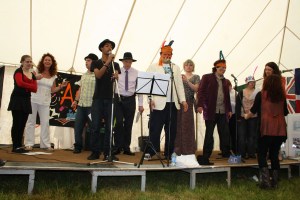by Jacqui Callis
“Music expresses that which cannot be put into words and that which cannot remain silent..”
~ Victor Hugo
There is no doubt that music is good for us – we’ve been singing about, creating, listening and dancing to those good vibrations for many years – and although people say it lifts our spirits it actually lifts us, or our vibration, to connect with our expansive or multidimensional spirit which has a constant good vibration of it’s own.
This connection is enabled by our brainwave patterns changing from left-brained Beta to right-brained Alpha waves. Beta waves are associated with the frequencies of ‘normal’ (neurotypical) conscious brain activity and our linear three-dimensional world, and we need Beta waves to be logical, focussed and successful within it. However, once we slow down, relax, close our eyes or meditate we step out of linear time and move into right-brained Alpha brainwaves and beyond.
Creativity and music are both right-brained activities linked more with ‘being’ than ‘doing’. They are expansive endeavors that free us from a constricting three-dimensional world, allowing us to engage with a more interdimensional one (an example of this is how linear time seems to fly by or not even exist when we are doing something creative like art or music).
No wonder then that creativity and music are so successfully enjoyed by those people living with autism.
Three years ago we started a singing and songwriting group (APEX) for autistic people and/or those with learning disabilities and their parents or carers. What started out as a diverse number of individuals has grown into a creative community of singers and songwriters. Within the group members have found and understood a common ground, enabling communication and support in that non-competitive way that Debra Hosseini describes in her blog ‘Autistic People Make Good Friends’.

APEX stands for Arts Participation and Expression and is based on the apex of a triangle that vitally balances two opposing polarities, incorporating both but with a higher resolving factor. In this way APEX equally seeks true balance through synthesis and inclusion. Most members have some communication issues, some are non-verbal and yet can sing quite happily together, sharing something the neurotypical parents or carers can also tangibly experience – we all come away with a deep feeling of connection.

There are numerous research articles on the web about the therapeutic effects of singing and music making particularly with regard to neurological disorders. Research has shown that speaking and singing use different different sides of the brain with melody and pitch being on the right and the language centre being on the left and that they have independent circuitry. It has also shown that these activities can produce plastic changes (reorganize neuroal pathways) in the brain. There is much interest here, particularly for engaging and strengthening those areas that are seen as ‘abnormal’ in autism with the potential of enabling ‘affected individuals to develop their language skills’ (The Therapeutic Effects of Singing in Neurological Disorders, Catherine Y. Wan, Theodor Rüber, Anja Hohmann, and Gottfried Schlaug))
Over the three years the APEX workshops have become a safe haven, a different world, one where neurodiversity is the norm and celebrated as such by all. Singing and making music together encourages a bond that bypasses boundaries. Songs are safe containers to hold and understand emotions and the songs that the participants have written speak of their dreams, their ambitions, their view of the world and on more than one occasion they have manifested into reality.

The social connections have now extended outside of the workshops and so some members initiate going for meals or gigs together, they go to each others parties, tell each other about events… it’s a slow process but real. At a recent workshop one participant commented that we were like a ‘family of brothers and sisters’.

The debate around possible interventions for neurodevelopmental disorders continues however, to coin a neurotypical phrase, for us with creativity and music ‘the proof is in the pudding!’








